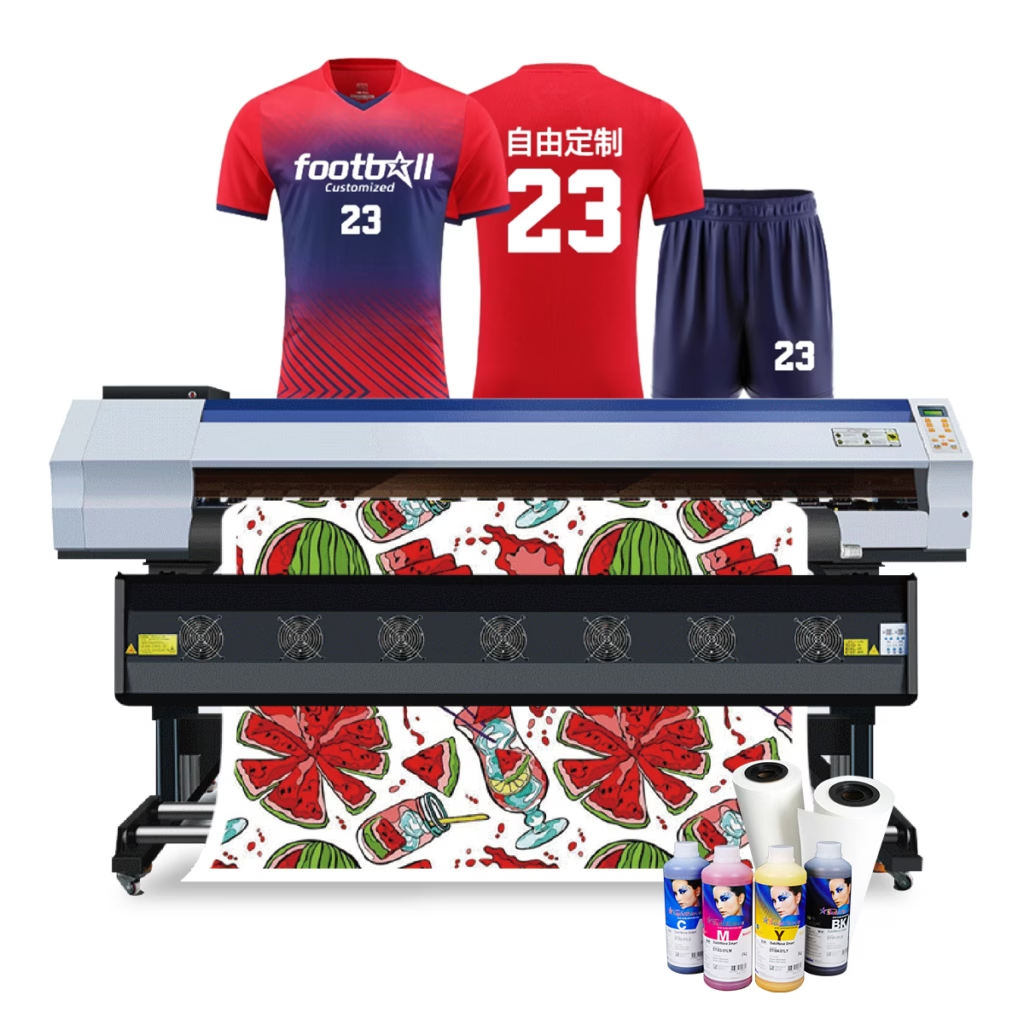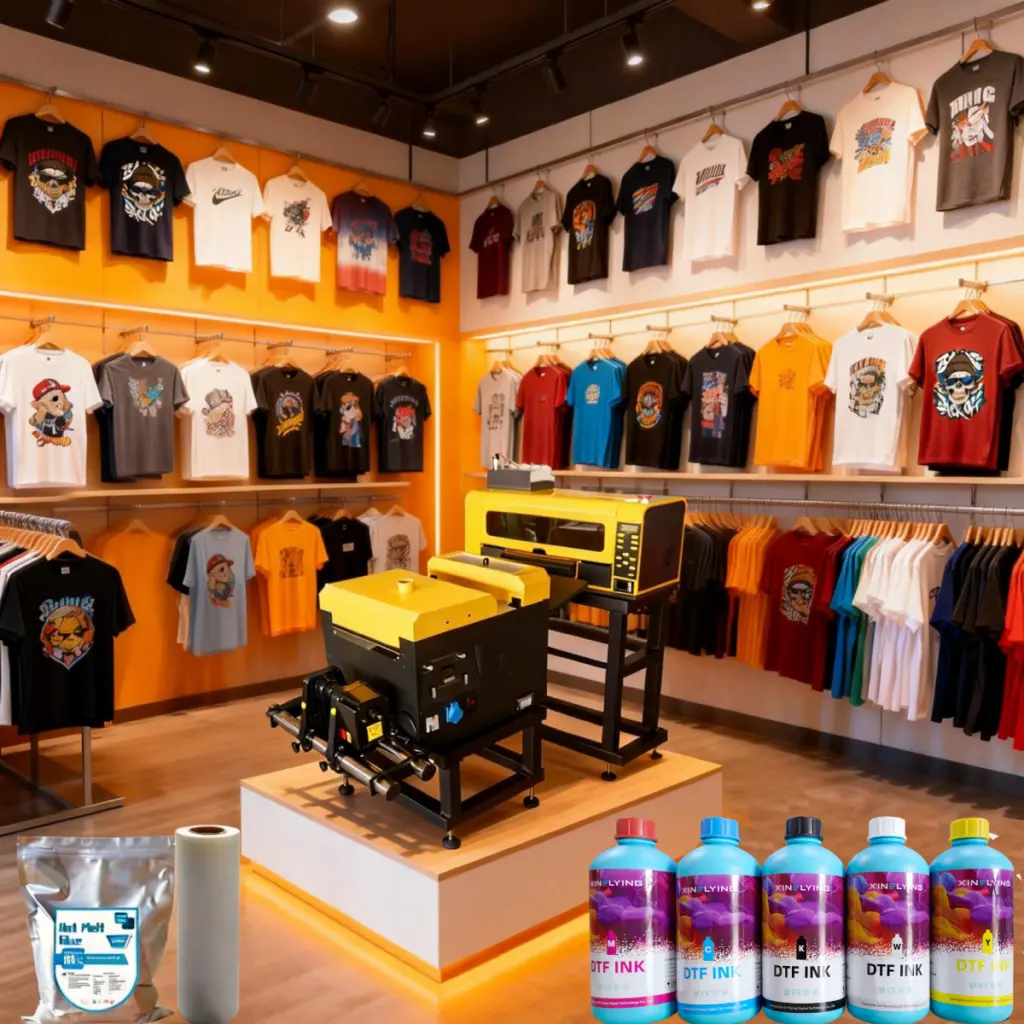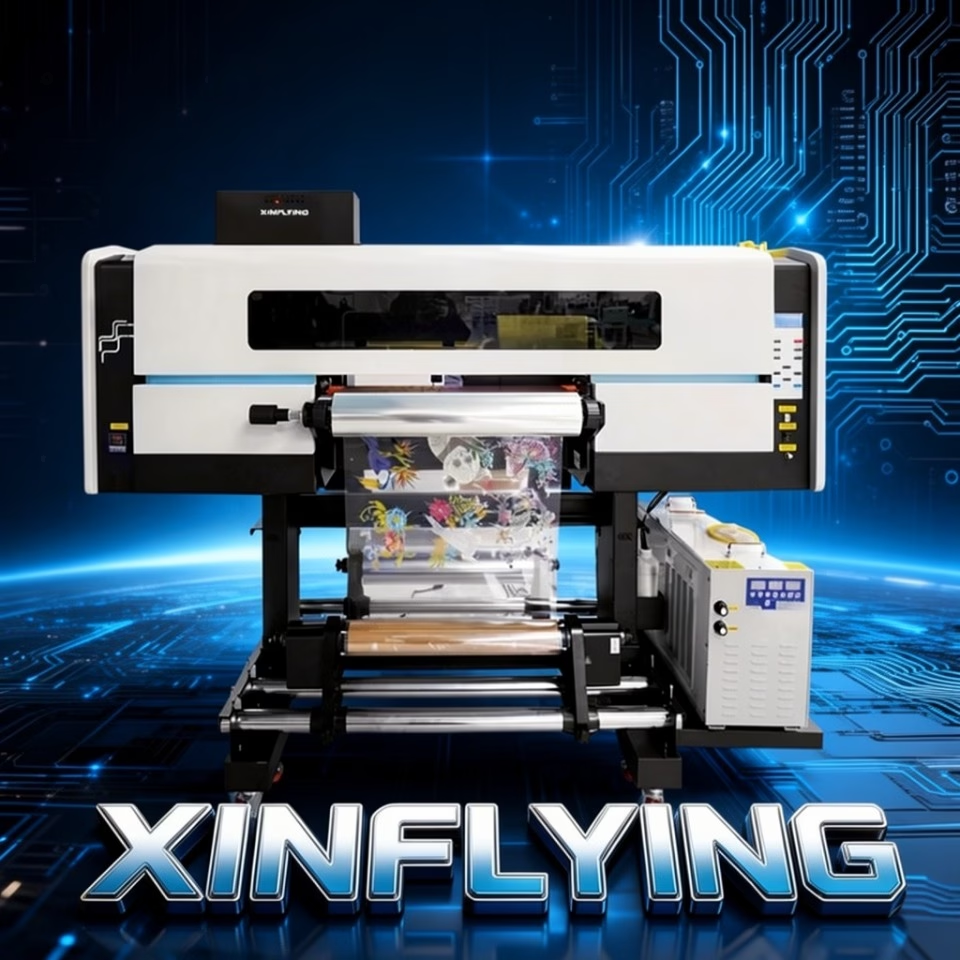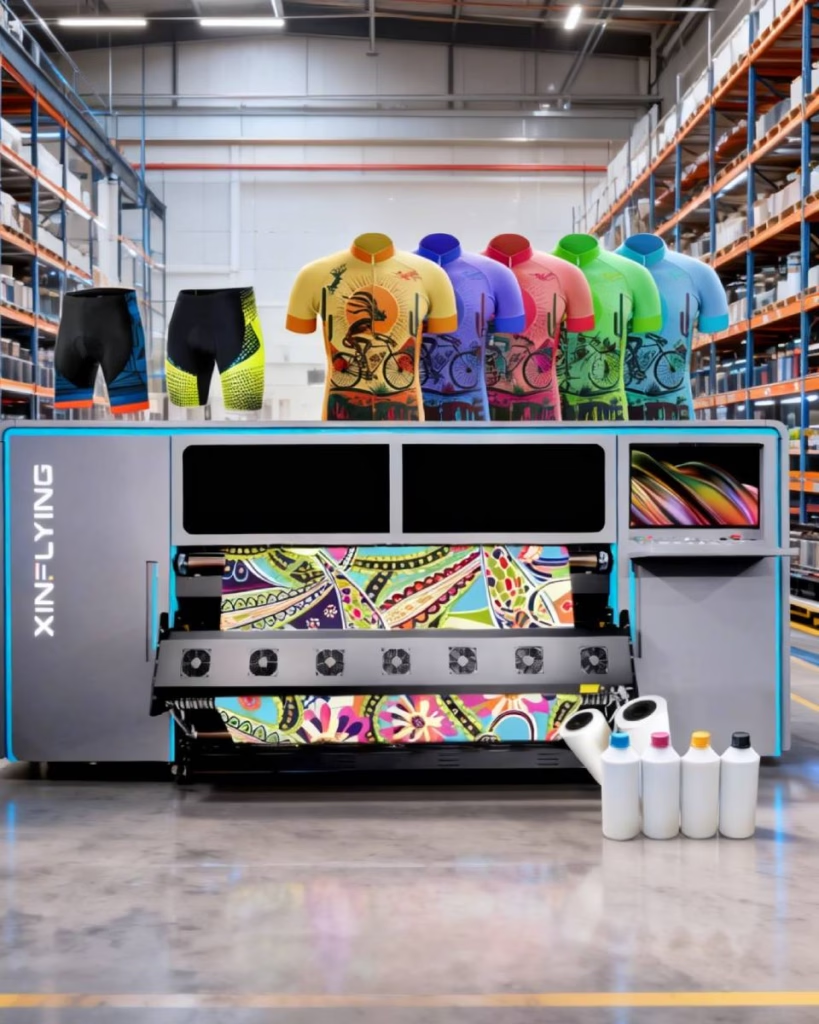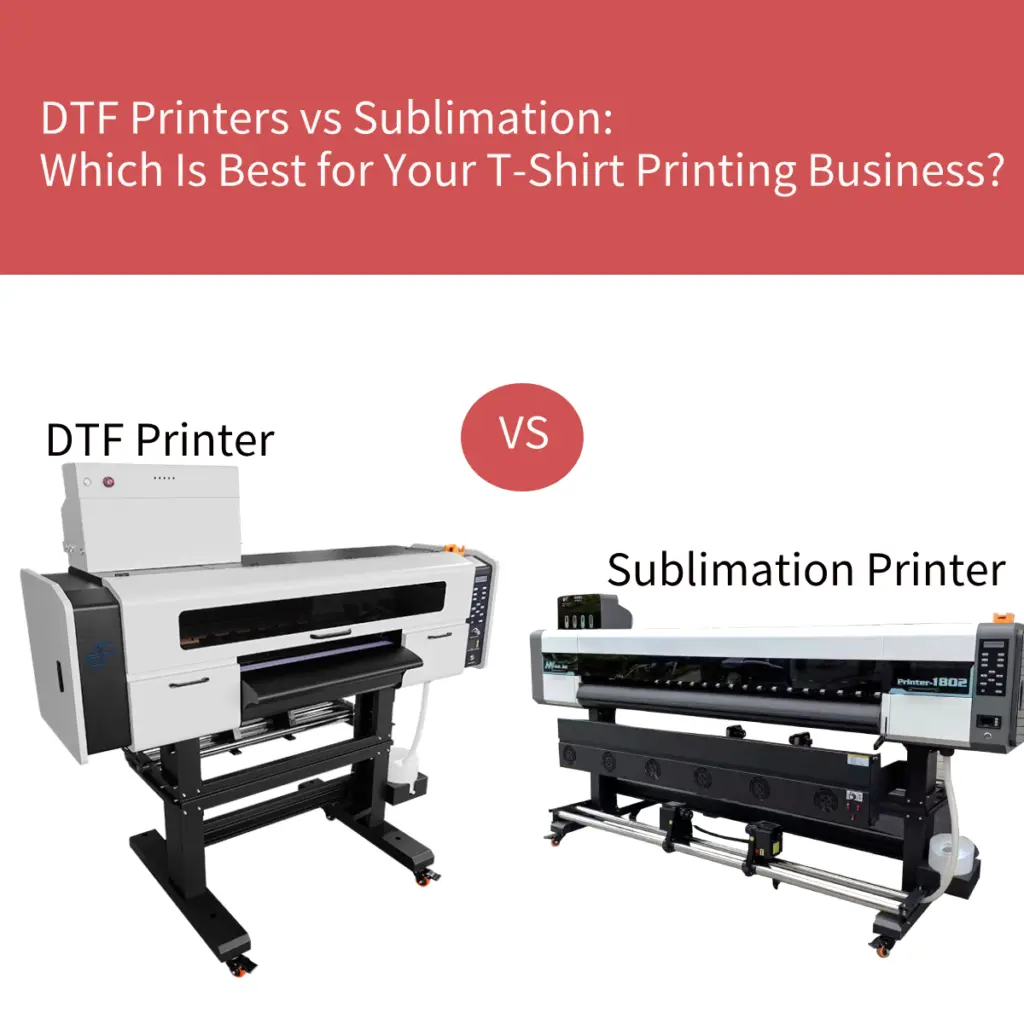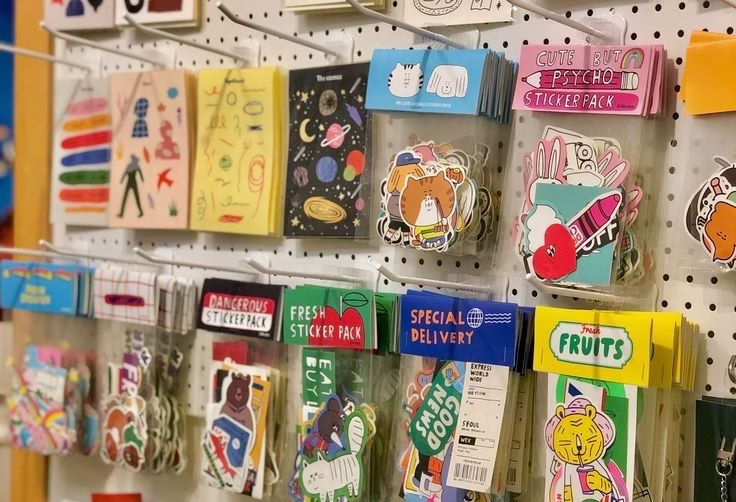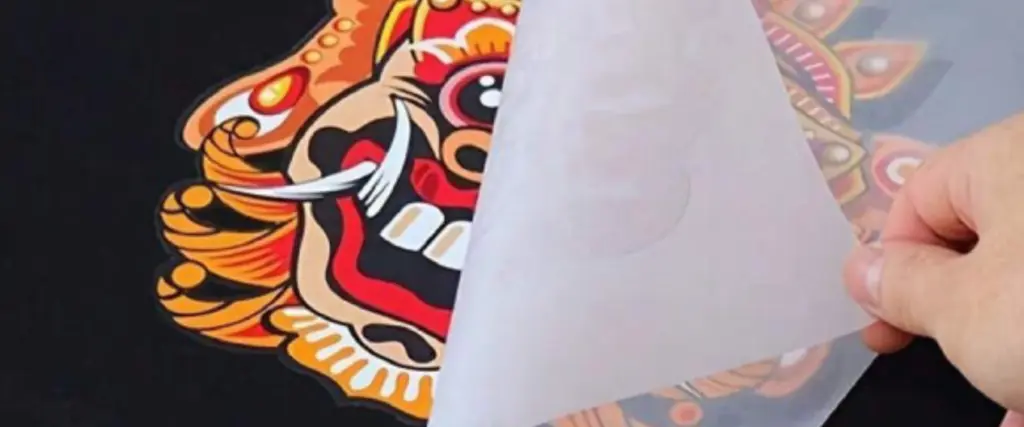Introduction
Quel est le facteur le plus important pour qu’une petite entreprise d’impression de T-shirts réussisse?
C'est simple: choisir la bonne machine d'impression de t-shirts.
Une imprimante fiable peut transformer complètement votre flux de travail, facilitant ainsi la production, amélioration de la qualité d'impression, réduire les coûts, et permettre des profits plus élevés. La bonne nouvelle est que le marché actuel propose de nombreuses imprimantes compactes mais puissantes, conçues spécifiquement pour les petites entreprises..
Ce guide vous expliquera tout ce que vous devez savoir pour choisir la meilleure machine d'impression de t-shirts pour votre entreprise.. Commençons.
Pourquoi une petite entreprise devrait-elle investir dans une imprimante de t-shirts?
Si vous dirigez une petite entreprise et ne possédez pas encore votre propre imprimante, tu pourrais te demander:
"Ai-je vraiment besoin d'un?»
La réponse est oui - et voici pourquoi:
1. Contrôle total sans compter sur des tiers
Posséder une imprimante signifie que vous pouvez concevoir et produire des chemises personnalisées à tout moment sans sous-traiter.. Des uniformes du personnel aux chemises d'entreprise en petits lots, tout devient plus rapide et plus flexible.
2. Coûts de production réduits
L'impression en interne vous permet d'éviter les commandes groupées et d'éliminer les stocks restants.. Vous produisez uniquement ce dont vous avez besoin – un avantage majeur pour les entreprises soucieuses de leur budget.
3. Délai d'exécution plus rapide
L'externalisation implique des échantillons d'approbations, queues, et des retards. Avoir votre propre équipement vous permet de livrer les commandes rapidement, donner à votre entreprise un avantage concurrentiel.
4. Aucune limite de commande minimale
Vous pouvez accepter n'importe quelle taille de commande, même une chemise. Cela ouvre les portes aux cadeaux personnalisés, éditions limitées, et demandes de niche.
5. Liberté de création illimitée
Expérimentez de nouvelles idées, tendances, thèmes saisonniers, ou tester des conceptions sans frais supplémentaires. Votre créativité n'est plus limitée par les MOQ des imprimantes.
Types d'imprimantes de t-shirts adaptés aux petites entreprises
Il existe aujourd’hui plusieurs technologies disponibles, chacun avec ses atouts et ses limites. Vous trouverez ci-dessous une liste des types d'imprimantes les plus couramment utilisés dans la production de vêtements pour petites entreprises..
DTF (Direct-to-Film) Imprimantes
L'impression DTF est devenue le premier choix des petites entreprises — et pour cause.
Les imprimantes DTF utilisent un film PET pour imprimer des dessins, puis appliquez de la poudre adhésive thermofusible et faites-la durcir à chaud. Une fois guéri, le motif est transféré sur le tissu à l'aide d'une presse à chaud. Les résultats sont éclatants, détaillé, durable, et convient à presque tous les tissus.
Pourquoi les petites entreprises préfèrent le DTF
- Fonctionne sur le coton, polyester, mélanges, et plus
- Produit photoréaliste, imprimés durables
- Nécessite un prétraitement minimal
- Excellent pour les petits lots et les commandes à la demande
Applications
- T-shirts et vêtements personnalisés
- Marchandises événementielles
- Boutiques en ligne
- Cadeaux personnalisés
- Production nécessitant une polyvalence sur tous les types de tissus
Même si l’investissement initial est plus élevé, la plupart des entreprises récupèrent rapidement les coûts en raison de marges bénéficiaires élevées.

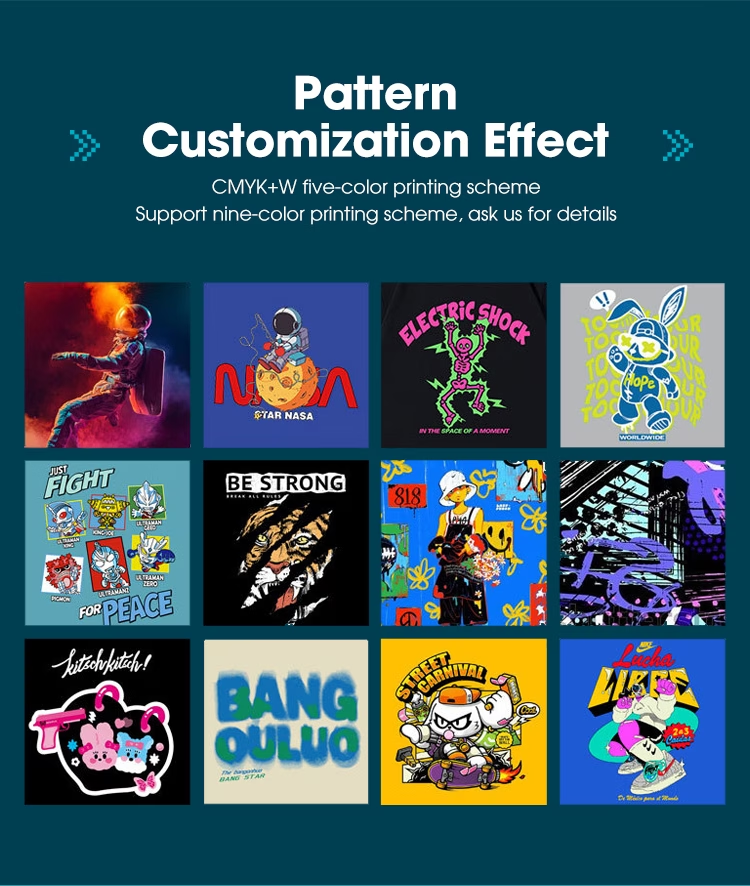
DTG (Directement sur le vêtement) Imprimantes
Les imprimantes DTG pulvérisent de l'encre à base d'eau directement sur le tissu, produire du doux, haute qualité, Impressions détaillées. Ils sont idéaux pour les conceptions riches en œuvres d’art.
Avantages
- Détails et précision des couleurs supérieurs
- Idéal pour les impressions uniques et les petits tirages
- Aucun film ou processus de transfert requis
Limites
- Idéal pour les tissus en coton
- Nécessite un prétraitement pour les chemises foncées
- Coût d'équipement plus élevé
- Les systèmes d’encre nécessitent un entretien régulier
Applications
- Boutiques
- Boutiques de vêtements personnalisés en ligne
- Entreprises se concentrant sur les conceptions artistiques ou basées sur la photo

Imprimantes à sublimation thermique
L'impression par sublimation utilise la chaleur pour transformer l'encre en gaz, le lier en fibres de polyester. Le résultat est fluide, vibrant, et durable.
Avantages
- Les imprimés semblent faire partie du tissu
- Excellent pour les vêtements de sport et les vêtements en polyester
- Idéal pour dynamique, modèles à couverture complète
Limites
- Fonctionne uniquement sur le polyester (ou produits enduits)
- Coûts d’équipement et de fournitures plus élevés
Applications
- Vêtements de sport et vêtements de sport
- Produits promotionnels
- Articles personnalisés comme des tasses ou des coques de téléphone
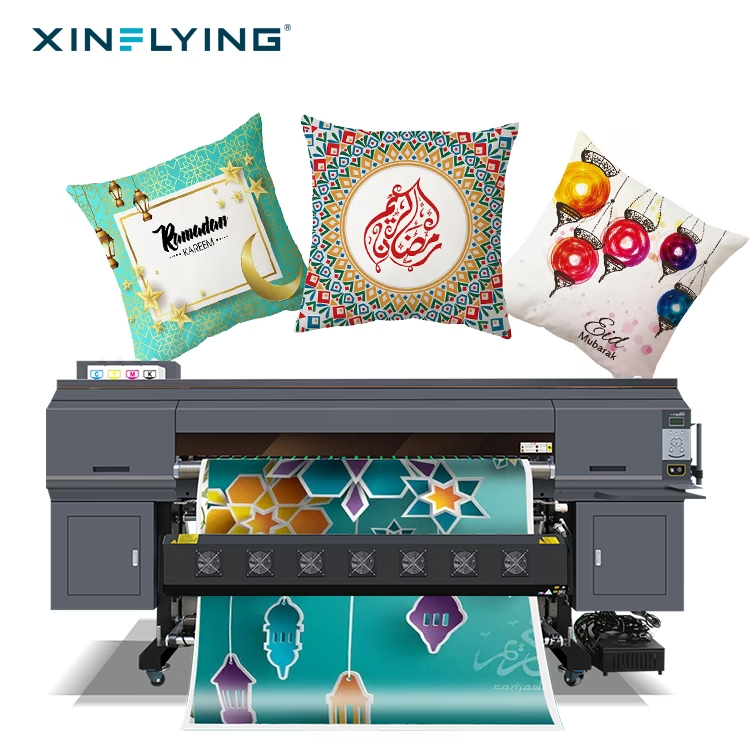
Impression d'écran
La sérigraphie pousse l'encre à travers les écrans à mailles et est connue pour ses résultats éclatants et durables..
Avantages
- Coût le plus bas par unité en vrac
- Impressions extrêmement durables
- Idéal pour les simples, dessins répétés
Limites
- Pas idéal pour les petites commandes
- Configuration fastidieuse
- Ne convient pas aux illustrations détaillées ou multicolores, sauf si vous utilisez plusieurs écrans
Applications
- Uniformes
- Marchandise en vrac
- Commandes répétées de logos
Vinyle de transfert de chaleur (VTH)
HTV utilise des feuilles de vinyle découpées qui sont pressées sur du tissu.
Avantages
- Faible coût
- Idéal pour les noms simples, Nombres, et logos
- Adapté aux débutants
Limites
- Limité aux couleurs de vinyle disponibles
- Plus lourd, sensation texturée
- Peut peler avec le temps
Applications
- Maillots de sport
- Vêtements bébé
- Articles personnalisés
- Petites demandes personnalisées
Quelle imprimante de t-shirts est la meilleure pour les petites entreprises?
Même si chaque technologie a ses propres avantages, L'impression DTF s'impose comme le meilleur choix complet pour la plupart des petites entreprises.
Pourquoi?
Parce qu'il offre:
- Polyvalence sur tous les types de tissus
- Production rapide
- Fort, imprimés vibrants
- Faible coût par impression
- Des marges bénéficiaires élevées
Cependant, le choix final doit toujours dépendre des besoins spécifiques de votre entreprise : styles de conception, tissus, budget, et la demande des clients.
Facteurs clés à considérer avant d’acheter une imprimante
1. Taille et vitesse d'impression
Identifiez la taille des conceptions que vous envisagez de produire et le volume de commandes que vous attendez.
2. Compatibilité des tissus
Choisissez une imprimante qui prend en charge les matériaux que vous utilisez le plus souvent.
3. Budget
Équilibrer l’investissement initial avec la rentabilité à long terme.
4. Facilité d'utilisation
Un équipement convivial réduit les erreurs et accélère la production – essentiel pour les débutants.
Conclusion
Choisir la meilleure machine d'impression de T-shirts pour votre petite entreprise nécessite de comprendre les atouts et les limites de chaque méthode d'impression.. Que ce soit du DTF, DTG, sublimation, impression d'écran, ou VTH, chaque technologie répond à des besoins différents.
Parmi eux, L'impression DTF est rapidement devenue le choix privilégié en raison de sa polyvalence, abordabilité, et des résultats de haute qualité.
En évaluant vos exigences de conception, choix de tissus, objectifs de production, et budget, vous pouvez choisir en toute confiance la machine qui correspond le mieux à votre entreprise et vous préparer à un succès à long terme.

